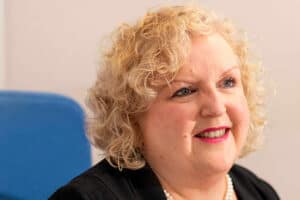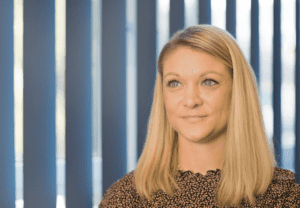Trust Solicitors
A Trust is a separate legal entity which can hold money or property
What is a Trust?
Trusts can be quite technical and complex in nature, but essentially a Trust is a separate legal entity which can own assets. Property or money can be transferred to the Trust.
The Trust is recorded in a written document, known as a ‘deed’. The person who sets up the Trust can dictate their own set of rules in the deed and determine how the money or property can be used and who is intended to benefit from it. Because a Trust is not a person, someone needs to be responsible for managing it and carrying out the instructions in the deed. The person who has that responsibility is called a ‘trustee’.
The primary use of trusts is to help protect, preserve or control assets. For example, it can be used to help protect against care fees, preserve assets for future generations, to prevent a beneficiary from losing their entitlement to means tested benefits or control how a vulnerable person should receive funds.
Trusts can be set up to be used in your lifetime or as part of your Will to come into effect when you pass away.
What areas of trust law do we cover?
The team at Mullis & Peake LLP Solicitors can offer you a wealth of collective experience and deliver high quality work in all matters relating to Wills and estate administration, offering particular emphasis on inheritance tax funds.
Estate planning
Estate planning is preparing a plan of action for transferring your assets to your beneficiaries or next of kin. A key part of the planning might involve ways to reduce your potential tax liability. This can help you pass more of your estate to those you care about.
Trusts can form a part of your estate planning as they can help protect, preserve or control assets. For example, it can be used to help protect against care fees, preserve assets for future generations, prevent a beneficiary from losing their entitlement to means tested benefits or control how a vulnerable person should receive funds.
Trusts and Probate Enquiry
Fill out the form and a member of our team will get in touch to discuss how we can help.
Mullis & Peake will use the information you provide in this form in accordance with our privacy policy. With your consent, we may from time to time send you general updates by email or post that we think you will find of interest.This includes notification of upcoming event and updates or alerts containing relevant legal news. You can update your preferences at any time and will be able to easily unsubscribe from anything that you do not wish to receive.
Trust disputes
A trust dispute is any dispute relating to the administration of a trust.
The trustee is the person who manages the trust and has the decision-making power subject to any limitations set out in the written trust deed. The beneficiary is the person who receives the benefit under the trust. Disagreements can often arise between trustees and beneficiaries. These may relate to costs, the value of trust assets or decisions about how the trust fund is to be used.

Will Trusts
It is possible to create a trust in your Will which only takes effect after you have passed away. It can be a very effective way to protect, preserve or control an asset.
The most common reasons for setting up a Trust are:
-
- To manage funds for children who are not yet old or mature enough to control their own finances;
-
- To protect and control money where beneficiaries are vulnerable or find themselves in vulnerable situations (for example if they have health complications or have marital or financial difficulties);
-
- To preserve an asset within a family or to pass down to future generations;
-
- To help reduce the risk of an asset being used towards paying care fees

Trustee Responsibilities
A There are a number of obligatory duties imposed upon a person who acts as a trustee. If a trustee fails to carry out their duties they will be in breach of trust.
A trustee's main duties are to:
-
- find out what property and assets belong in the trust
-
- take control of those properties and assets
-
- thereafter ensure its preservation

Recent cases
Case study 1
Mrs N died a widow leaving one adult daughter who was sadly addicted to alcohol and unable to work owing to poor health. Mrs N left her entire estate to a trust, set up to benefit her daughter. She named Mullis & Peake as her trustees which meant the firm was responsible for running the trust and were able to pay out the funds on the terms set out by Mrs N under her will.
As the trust was deemed to own the money from the estate, it meant it did not affect the daughter's means tested benefits. Because Mullis & Peake was the trustee it meant the daughter did not have free access and so would not be tempted to use the funds to aggravate her poor health and fuel her alcohol addiction. The Trustees are able to ensure the funds are used sensibly and last as long as possible, ideally for the remainder of the daughter's life.
Case study 2
Mr T and Mrs T each had children from previous relationships. They were concerned about making outright gifts to each other on the first death. Specifically they were mindful of the risk the surviving spouse could re-marry or simply pass on the combined wealth to their own natural children to the exclusion of the step-children.
Mr & Mrs T used a Will trust to dictate how their individual wealth was used and who it would pass to. They were able to ensure the surviving spouse had the benefit of the estate for the remainder of their life, with any unspent surplus to pass to each person's natural children respectively. It therefore allowed them to retain a degree of control and ensure future generations were cared for.
Case study 3
Mr K was married with children. In order to protect against possible future care fees, Mr K transferred his home into a trust during his lifetime and whilst he was in good health. Under the terms of the trust he set rules about who could live in the property and even made provisions for moving or downsizing. He provided for him and his wife to continue living at the property with their children the ultimate beneficiaries but only after they had both passed away.
Seventeen years later Mr K required care but the house was not considered when assessing him for means tested care. After Mr K passed away Mrs K decided to sell the original house and move closer to her children under the terms of the trust her husband had set up. Mrs K later required care but the new house was not considered when she was assessed for means tested care funding eligibility.
Mr & Mrs K were able to freely use their home during their lifetime and their children received the maximum benefit and value after they had both passed away. By using the Will trust, Mr K ensured more of his wealth passed to his family.
Frequently asked questions
It is often thought that Trusts are only used by the rich and famous to avoid paying tax. In reality Trusts still form a very important part of protecting assets and tax planning for almost everyone.
In a Will, Trusts can be tailored to almost every individual scenario to suit the needs of you and your estate. The most common reasons for setting up a Trust is to protect assets when passing on to beneficiaries where:
- Children are not yet old enough to manage the assets themselves
- Beneficiaries are vulnerable or find themselves in vulnerable situations (for example if they have health complications or have marital or financial difficulties)
Trusts, managed by carefully selected trustees, can provide that extra piece of mind in scenarios where the intended beneficiary might not be capable of taking control of assets all in one go.
The four main types of trusts:
- bare trust - where the trustee hold an asset for a named beneficiary(ies) for a set period of time. An example could be a parent holding money in a trust account for their child until they turn 18, at which point ownership automatically passes to the child.
- interest in possession trust - this is where different people can have a right to the income and capital. An example might be a house which Mr K places in trust where Mrs K can continue to live in the house and receive any income it might generate during her lifetime but has no right to the house itself. After she passes away the house is shared by the children.
- discretionary trust - these types of trust are quite flexible and leave a significant degree of autonomy in the hands of the trustee, who is responsible for managing the trust. The trustee might decide who gets paid out, when and how often. An example might be a grandparent setting up a discretionary trust for all of their grandchildren where each one might have different needs, particularly if one or more has a disability, so there is no requirement to distribute equally.
- mixed trusts - this is a combination of the different trusts mentioned above and may have a range of tax implications.
Trusts can be quite technical and complex in nature so it is best to speak to an expert who can understand your needs and discuss which type of trust might be best suited to your situation.
There are two ways to set up a trust - either in your lifetime or under you Will to apply on your death.
To set up a lifetime trust you will need to have a trust document drawn up and signed by the person setting the up the Trust (the Settlor) and the people being appointed to manage the trust (the Trustees).
To set up a trust on your death you need particular wording to be included in your Will to ensure the nature and meaning of the Trust is properly conveyed.
Nearly all active trusts have to be registered with the Trust Registration Service, even if they are not subject to tax.
When you transfer assets to a trust during your lifetime you will need to consider inheritance tax and capital gains tax.
If you transfer assets in excess of the Nil Rate Allowance (£325,000) into Trust in any seven year period during your lifetime, the amount in excess of the allowance is subject to inheritance tax at 20%. If you die within seven years of the transfer further inheritance tax at an additional 20% will become due.
A transfer of assets into a trust is a disposal for capital gains tax purposes and therefore if the assets that you are transferring into trust during your lifetime have increased in value since you acquired them that uplift in value will be subject to capital gains tax.
On your death any gifts, including transfer of assets into a trust, made in the seven years prior to your death will be taken into account in calculating the inheritance tax due.
Inheritance tax may also be due on assets held in trust when they are transferred out of the trust (exit charges) and on each 10 year anniversary of the trust being set up (periodic charges). This charge is a maximum of 6%.
The income and gains generated by trust assets will belong to the trust and will be taxed at trust rates and not at personal rates.
For more detailed advice regarding capital gains tax, the exit and periodic charges and the ongoing taxation of trusts you should always seek specialist tax advice.
Every situation is unique so our team will always look to discuss your needs with you, on a no obligation basis, before providing an estimate of fees. However, the typical range of costs for setting up a trust is £900 plus VAT at 20% to £3,000 plus VAT at 20% and expenses.
We can also work with your accountant or financial adviser to set up a structure which they might recommend for you taking into account your particular financial and tax circumstances.
A Trust is a legal concept where Trustees hold assets for Beneficiaries. This may be because the Beneficiary is vulnerable and the funds need to be protected from financial abuse, or the Beneficiary is unable to manage the funds personally. Other uses include ensuring that funds remain in the family in the event that a widow or widower remarries, or to hold funds from life insurance policies. A trust can be considered to be a legal person, so they can own assets in the same way a person can, for example, a house. So, if you wanted to set up a trust, you could give the house to the trust, which is like a person, and set rules for the trust as to how they deal with the house, so they can make sure that it goes to a particular group of people that you wish.
Mullis & Peake have a team in Trusts and Wills ready to help you. Contact us online today or call us on 01708 784000.
Alternatively, request a call back to have one of our people contact you at a time that suits.






















